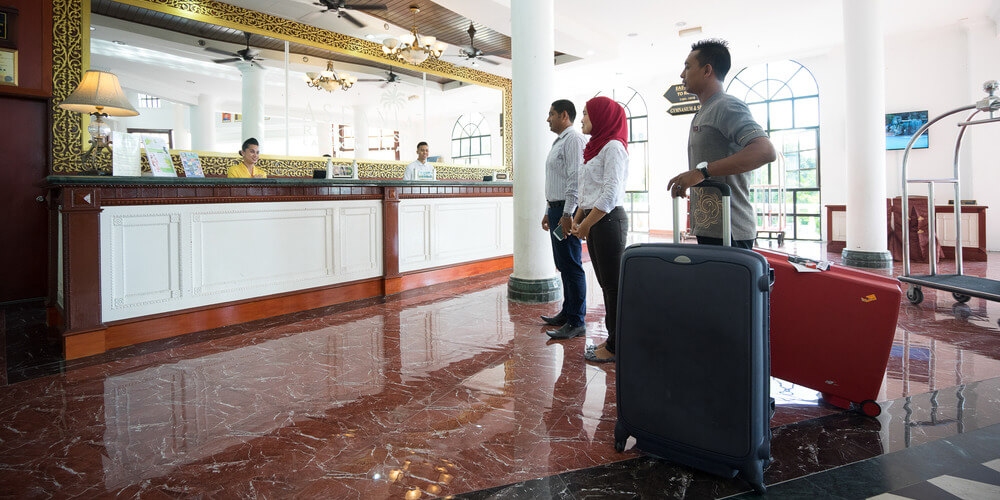Hotels struggle to find staff as Malaysia opens up to tourists
Hospitality workers have left the industry in droves since the start of the COVID-19 pandemic.
KUALA LUMPUR: As the Malaysian travel and tourism industry emerges from a year of lockdowns, job losses and disruption, it is now facing a recruitment crisis, with legions of waiting staff, housekeepers and kitchen workers turning their back on the sector.
The situation has become so bad that general managers are being forced to do the work of chambermaids and businesses are being forced to turn away customers.
Fed up with flip-flopping restrictions forcing tourism properties to open and close repeatedly since March 2021, many of the officially estimated 8,000 staff who have left the industry do not plan to return to their erstwhile occupations.
“One general manager told us that they had to clean 40 rooms themselves because of the staff shortage,” said Mohd Asyaharim Abdul Latif, Chief eExecutive of the Resu Foundation, which has business interests in the tourism industry.
Speaking on the first day of the World Islamic Tourism Conference in Kuala Lumpur on November 15, he added: “There is a critical need to find manpower. The idea of sustaining people in the industry is very difficult now, and the challenge of rehiring people is not getting any easier.”
When the onset of the pandemic led to Malaysia’s first lockdown, many hotels and hospitality venues were forced to cancel staff contracts or put employees on unpaid leave.
After this lockdown was lifted last summer, the travel and tourism industry reopened and jobs were reclaimed. But a subsequent spike in cases led to widespread closures late last year, and again this year after a brief period of resumption. During that time, many hospitality workers have reportedly found income from the gig economy or by selling goods on social media.
“Those who have left the industry have found other jobs to do, and they might feel more freedom doing food delivery for a certain app,” said Yap Lip Seng, Chief Executive of the Malaysia Association of Hotels.
“This trend of opening, closing, opening and closing gives nobody any confidence. Even with the banks, if you’re working in the hospitality industry, you can’t even get a credit card or a loan. You are deemed to be high risk.”
The staff shortage has benefited casual staff, who are now being offered in the region of 15 ringgit ($3.60) per hour, compared to Malaysia’s minimum wage of 4.81 ringgit. Some workers are getting much more than that due to innovative incentive schemes.
“We heard about a hotel in Kuala Lumpur that would hire people at 14 or 15 ringgit an hour, and at the end of the day, there would be a lucky draw for 1000 ringgit ($240). Imagine that: the things hotels have to do just to attract workers,” Yap said.
Even the airline segment has been affected. Although technical staff numbers have remained static, since roles such as pilots and aviation mechanics are highly specialised, cabin crew and passenger handlers have moved away in droves, according to Mushafiz Mustafa Bakri, Chief Executive of Malindo Air.
“A lot of them have not been confident enough to return back to the industry after long-term unpaid leave and retrenchment. It’s not easy for us to attract them back to our industry,” he said.
Besides difficulties with staffing, industry figures are getting increasingly upbeat, especially after the government announced last week that Malaysia’s borders will reopen to international travellers by January 1 “at the latest”.
While this will doubtless please the beleaguered travel and tourism industry, it isn’t the boost one might have expected, since Malaysians have become accustomed to holidaying at home – or ‘staycations’.
“There is a huge market for those who used to travel overseas, and these are the people with the good spending power,” said Yap.
“We see this particular group travelling to Malaysia’s high-end hotels and resorts. They will spend because they are already used to spending a lot on travel, so that’s a huge opportunity.”
© SalaamGateway.com 2021 All Rights Reserved
